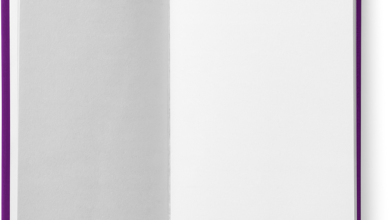
Boost Your Mood: The Mental Health Benefits of Using a Calendar
In today’s fast-paced world, the importance of maintaining good mental health cannot be overstated. Amidst our busy routines, it is all too easy to feel overwhelmed, disconnected, and lost. Finding effective ways to manage stress and improve overall well-being is essential. One powerful yet often overlooked tool is the calendar. Using a calendar not only helps organise time but also provides significant mental health benefits that can boost mood and enhance overall life satisfaction.
Understanding the Importance of Time Management
Time management is a crucial aspect of life that can significantly impact mental health. Poor time management often leads to feelings of anxiety, overwhelm, and a general sense of chaos. By using a calendar to organise tasks and activities, individuals can gain a clearer perspective on their responsibilities. This clarity helps mitigate feelings of stress and allows them to approach their days with purpose and intention.
Effective time management through calendar use encourages people to allocate time for important activities, such as work, leisure, and self-care. This balance is vital for psychological well-being. When individuals can visualise their time, they tend to feel more in control, leading to reduced anxiety and improved mood.
Promoting Structure and Routine
One of the most significant benefits of using a calendar is the structure it provides. Humans are creatures of habit, and establishing routines can make life more predictable and manageable. By marking appointments, deadlines, and daily tasks, calendars encourage individuals to develop a rhythm in their lives, which can be incredibly beneficial for mental health.
For many, the act of having a structured day can reduce feelings of aimlessness and boredom. This is particularly crucial for those suffering from mental health challenges, such as depression or anxiety, where motivation levels can fluctuate. A calendar helps in creating a sense of accomplishment as tasks are completed, enhancing feelings of productivity and purpose.
Reducing Overwhelm Through Visualisation
Overwhelm can be a significant barrier to mental well-being, often stemming from an inability to see and manage responsibilities effectively. A calendar provides a visual representation of tasks and deadlines, which can be immensely helpful in breaking down larger projects into manageable pieces. By segmenting tasks into daily or weekly goals, individuals can focus on one thing at a time rather than being consumed by the enormity of everything they need to accomplish.
The mere act of seeing everything laid out visually can help alleviate anxiety. Instead of feeling burdened by a long list of things to do, a calendar can turn chaos into clarity. It allows individuals to allocate their time wisely, ensuring that they do not overcommit themselves, which can often lead to burnout.
Enhancing Social Connections
Social interactions play a critical role in mental health. Using a calendar can help individuals to schedule and organise social activities, leading to stronger relationships. Whether it’s setting reminders for family gatherings, lunch dates with friends, or even self-care days, a calendar ensures that important social connections are not neglected.
Engaging in social activities can provide emotional support, foster feelings of belonging, and combat loneliness. Maintaining social connections is particularly important for those who may struggle with mental health issues, as isolation can exacerbate feelings of sadness and anxiety. By prioritising social engagements through the use of a calendar, individuals actively take steps to enhance their support networks.
Setting Goals and Celebrating Achievements
A calendar can be an effective tool for goal setting and tracking progress. Whether personal or professional, setting specific, measurable, achievable, relevant, and time-bound (SMART) goals can contribute to a strong sense of purpose and direction. By recording goals in a calendar, individuals can break them down into actionable steps, making them more attainable.
Tracking achievements, no matter how small, can produce positive feelings and contribute to improved self-esteem. When goals are completed, individuals can take the time to celebrate their successes, reinforcing the positive emotions associated with accomplishment. This practice creates a positive feedback loop that encourages continued productivity and motivation, fostering a better mood.
Encouraging Self-Care and Mindfulness
The relentless pace of modern life often leads individuals to neglect self-care and mindfulness. A calendar can be instrumental in encouraging self-care practices by allowing individuals to schedule time for relaxation, hobbies, and self-improvement. By allocating time for activities that bring joy and fulfilment, individuals can combat stress and enhance overall happiness.
Mindfulness is particularly beneficial for mental health, as it allows individuals to stay present and reduce feelings of anxiety and rumination. Scheduling mindfulness practices, such as meditation, journaling, or simple breathing exercises, into a calendar can act as a reminder to slow down and focus on the present moment. This practice not only boosts mood but also enhances emotional resilience in the face of challenges.
The Therapeutic Process of Writing
Another often-overlooked benefit of using a calendar is the therapeutic nature of writing things down. The act of writing can clear the mind and help individuals process their thoughts and feelings. This practice can serve as a form of emotional release, leading to decreased feelings of stress and anxiety.
When individuals jot down their thoughts, goals, or even daily reflections in a calendar, they are creating a record of their experiences. This becomes particularly useful during difficult times, allowing individuals to track their moods, understand triggers, and gain insight into their emotional well-being. Keeping a mood journal alongside a calendar can enhance self-awareness and provide a tool for personal growth.
Facilitating Better Decision Making
Utilising a calendar effectively can lead to improved decision-making skills. When individuals can clearly see their commitments, they are better equipped to make informed choices regarding what to pursue or decline. This ability to manage time and commitments can alleviate feelings of regret or anxiety about missed opportunities.
By making intentional decisions about how to spend time, individuals can create a more fulfilling and stimulating life. This intentionality can lead to greater satisfaction in daily living, as actions align more closely with personal values and goals.
Creating a Visual Reminder of Progress
For many, physical reminders of progress can be profoundly motivating. Calendars provide a visual representation of accomplishments, deadlines, and events. The satisfaction of crossing items off a list or marking completed days can contribute to a sense of achievement and progress.
This visual reminder is particularly uplifting during challenging times. When feelings of inadequacy or failure creep in, looking back at a calendar filled with completed tasks and social engagements can reinforce a positive self-image and remind individuals of their capabilities.
The Joy of Anticipation
Calendars also foster a sense of anticipation. Marking future events, from a holiday to a family gathering, can enhance mood and provide something to look forward to. This sense of anticipation can uplift spirits and stave off feelings of boredom or malaise. The emotional benefits of having positive experiences to look forward to cannot be overlooked, as these moments break up the monotony of everyday life.
Conclusion
The mental health benefits of using a calendar are profound and multifaceted. From promoting structure and reducing overwhelm to enhancing social connections and encouraging self-care, the simple act of keeping a calendar can transform how individuals manage their time and emotional well-being. By embracing the power of organisation and effective time management, individuals can significantly boost their mood and improve their overall mental health.
In an era where anxiety and overwhelm are prevalent, utilising a calendar not only aids in daily task management but also serves as a powerful tool for fostering emotional resilience and well-being. By prioritising time for oneself, setting and tracking goals, and celebrating progress, individuals can find joy in the little things and create a more fulfilling life. So, grab a calendar—be it digital or traditional—and take the first steps towards a more organised, focused, and ultimately happier life.





